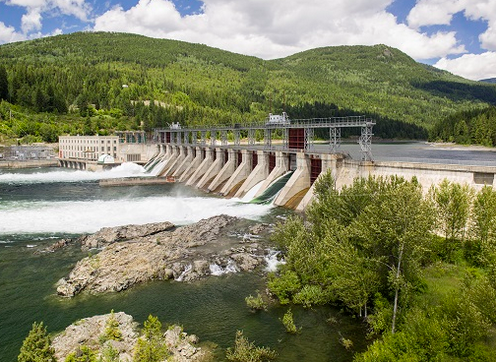Cold climate and chill bills: power rates rise as temperature drops
As the temperature continues to drop in the West Kootenay region the electrical rates are rising from one of the area’s largest energy providers.
FortisBC will be tacking a 6.74 per cent general rate increase — as approved by the B.C. Utilities Commission — as of Jan. 1 on to all customer bills, a rate rise that comes during the time of peak energy usage in the West Kootenay.
With an average use of approximately 1,100 kilowatt hours per month of electricity, people will see an increase of about $11.26 per month, but the actual increase will be based on unique energy usage in home or business.
The change in rates will help FortisBC purchase electricity to meet the demand and upgrade the delivery system.
“Investments in the electricity system are important and represent an opportunity to strengthen the system so that it can continue to deliver energy and support a low-carbon energy future,” said Michelle Carman, FortisBC vice-president of customer service and external communications, in a press release. “Rates also support our comprehensive rebate and energy efficiency programs that our customers value and enjoy.”
As to how customers can manage their electricity bills this winter, Carman stated that “cold weather can impact your energy use, and you may see an increase in your monthly bill if you are relying more on your heating system.
“In fact, electricity use tends to go up for most B.C. homes during the winter,” she said.
The main driver behind the rise of rates is the increased cost of purchasing electricity, said Joe Mazza, FortisBC vice president of energy supply and resource development, in a statement on the company’s website.
He said FortisBC purchases some of its power requirements from the regional wholesale market.
“The cost of electricity has risen in recent years with the phasing out of coal plants, lower hydroelectricity generation and greater than anticipated demand for electricity with population growth in the region and increasing electrification of parts of the economy. This includes, for example, greater reliance on electric vehicles,” he said.
The rate hike directly influenced Nelson Hydro’s similar rate rise on Jan. 1. Last month the city-owned utility’s general manager, Scott Spencer, said he felt the general rate increase from FortisBC was a contributing factor in their rate rise.
FortisBC’s power supply comes from its four hydroelectricity facilities — Corra Linn, Upper Bonnington, Lower Bonnington and South Slocan — and three other areas: long-term contracts with BC Hydro; other producers; and the wholesale market.
As a regulated utility, FortisBC applies to the BCUC each year to set electricity rates for the following year.
In B.C. FortisBC delivers 21 per cent of the total energy consumed — more than any other utility company in the province — with a service area from Creston in the east to the West Kootenay. The company also delivers natural gas to most of the province.



























Comments